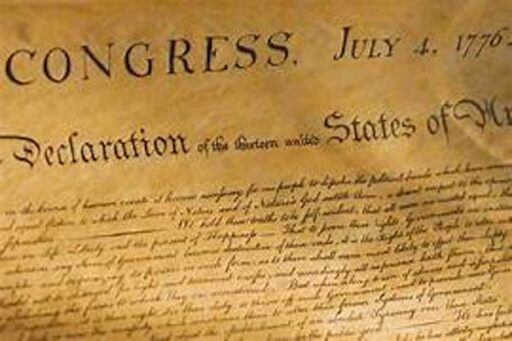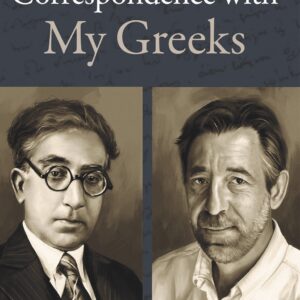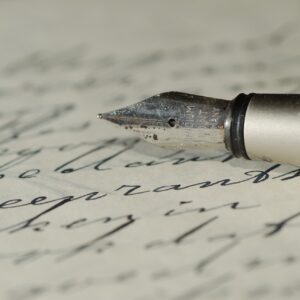I think the closest close reading I’ve ever come across is the 2014 book Our Declaration: A Reading of the Declaration of Independence in Defense of Equality, by political philosopher Danielle Allen. Notice that I didn’t say that this close reading is “in the book.” No, the entire book itself is a close reading.
Allen begins by acknowledging that, as a teacher, she has long led her students through close readings (which she prefers to call “slow readings”) of works of literature. Then she announces that in Our Declaration, she’ll be reading the Declaration of Independence “sentence by sentence.” Actually, she zooms in much closer than that: she reads the Declaration phrase by phrase and sometimes even word by word.
The word she’s most invested in is (as her subtitle suggests) “equality.” It appears just twice in the Declaration—most famously in the start of the well-known second sentence: “We hold these truths to be self-evident, that all men are created equal….” Here equality is personal; its equality is among people. But another facet of equality appears in the Declaration’s opening sentence: “When in the Course of human events, it becomes necessary for one people to dissolve the political bands which have connected them with another, and to assume among the powers of the earth, the separate and equal station to which the Laws of Nature and of Nature’s God entitle them…” Here, Allen notes, the equality is political; it’s “among the powers of the earth.”
In the course of the book, Allen explores three more facets of equality in the Declaration:
3) What we would now, she says, call “crowd sourcing”: that is, the Declaration’s writers “drew on extensive conversational networks among ordinary people to develop a clear picture of the course of human events”—an equality of perspective among members of the community.
4) “Egalitarian practices of reciprocity” among citizens: that is, “securing conditions in which no one dominates anyone else.”
5) In the Declaration’s final words: “And for the support of this Declaration, with a firm reliance on the protection of divine Providence, we mutually pledge to each other our Lives, our Fortunes and our sacred Honor.” Here each signer (and his colony—now declared a state) pledges an equal stake in the creation of a new political order.
But to return to Allen’s method of close reading the Declaration. She starts, naturally, with the famous first sentence:
When in the Course of human events, it becomes necessary for one people to dissolve the political bands which have connected them with another, and to assume among the powers of the earth, the separate and equal station to which the Laws of Nature and of Nature’s God entitle them, a decent respect to the opinions of mankind requires that they should declare the causes which impel them to the separation.
The first stop of Allen’s reading of this sentence is with the word “Course”—which she explicates by taking “course” as a “river.” This initiates a model of close reading: “Although Jefferson may not have been thinking explicitly about rivers…, the language itself, the word ‘course,’ has this useful image built into it [italics mine]. We can use this image of a river to work our way into the sentence.” Which is what she proceeds to do. For instance a river, she notes, “has a definite shape”—and “human events,” like a river, “cohere.” They are “going somewhere.” Allen unfolds the river metaphor for several pages, concluding by applying the image to contemporary politics:
“When the colonists referred to the course of human events, they were taking responsibility for observing the currents within human action that pull us toward destinations, as identifiable—once we arrive, that is—as the Gulf of Mexico. It is our job as citizens to understand those currents—and to debate them and their direction—in the public sphere, so that we can see…the destinations that politicians and leaders are steering toward. The very course of human events depends on it.”
Allen’s next stop is with “it becomes necessary“—because “finishing the rest of the first sentence requires us to meditate on the idea of ‘necessity,’ one of the central concepts in the Declaration.” The meditation that follows is long and deep, consuming some fifteen pages. It takes Allen into the meanings of “the Laws of Nature,” of “Nature’s God,” and of “entitle.” This last she calls “a lovely word that comes from English law”—which leads her into what it means to have a “title” to something. A title, she says, is a legal document: for instance, I have a title to my house and a title to my car. But how, she then asks, “do the laws of nature and of nature’s God similarly give the newly united states a right to separate and equal station among the powers of the earth?”
To answer this question, she explores what “nature” would have meant to the Declaration’s writers; then she explores why they felt the need to put “God” into the document. In both cases, she concludes, the colonists felt a moral obligation—a kind of necessity—imposed upon them. Yet there’s also “one last kind of necessity” which “demands reflection”—”a decent respect to the opinions of mankind.” Recall the Declaration’s opening sentence in full:
When in the Course of human events, it becomes necessary for one people to dissolve the political bands which have connected them with another, and to assume among the powers of the earth, the separate and equal station to which the Laws of Nature and of Nature’s God entitle them, a decent respect to the opinions of mankind requires that they should declare the causes which impel them to the separation.
To explicate why the writers find it “necessary” to appeal to “a decent respect to the opinions of mankind,” Allen uses the metaphor of divorce. The Declaration is stating that it’s “necessary” for the colonists to “dissolve” their bonds with Britain; that they are “impelled” to this “separation.” Just as one partner in a marriage must legally declare causes for filing for divorce, the colonists feel an obligation to the world’s opinions to declare the causes that force them to their separation (divorce) from Britain.
The remainder of the Declaration will set forth these “causes.” And the remainder of Allen’s book will “slow read” them, sometimes so slowly that she devotes an entire chapter to a single word.
Allen is explicit in Our Declaration about “the value of learning to read slowly and listen closely.” It’s “not merely that we will understand the Declaration better but also that we will understand every politician better.” And, I’d add, understand each other better.
Peggy Rosenthal has a PhD in English Literature. Her first published book was Words and Values, a close reading of popular language. Since then she has published widely on the spirituality of poetry, in periodicals such as America, The Christian Century, and Image, and in books that can be found here.





